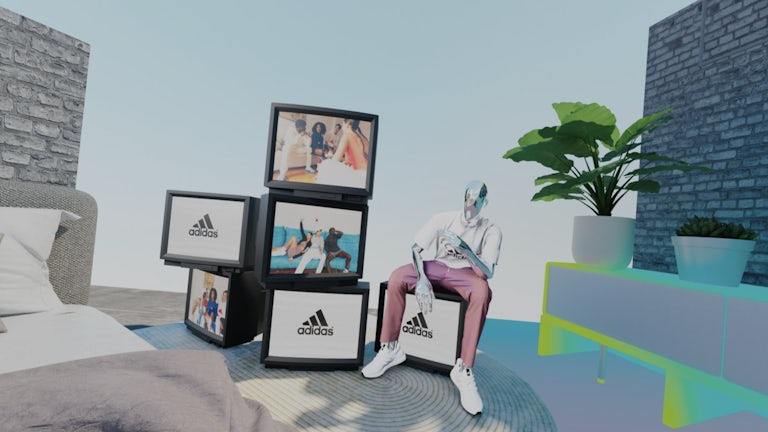Shopping Bag (0)
Shopping bag is empty


As the Delta variant wreaks havoc, the world is jumping in and out of lockdowns. With travel corridors continuing to reopen (and shut again), and a host of letters in the Greek alphabet for us to get acquainted with, Simon Richardson of Amplify says it’s important for experience agencies to remind ourselves of the volatility and local nuance of our situation.
As we craft experiences to engage global audiences, this needs to be top of mind if we’re to reach and resonate with consumers who are in constant flux.
In the UK, as audiences flood back to festivals, fill out football terraces and return to the high street, we need to cater for those rediscovering their freedom. Equally, we need to make sure we’re not losing sight of those who can’t willingly re-embrace normality.
But flip to Australia, where experiences need to engage those re-adjusting to new restrictions. After a year of relative freedom, sparking envy among global onlookers as Australians enjoyed music festivals and events, the country is suffering its first Delta outbreak. Event organizers and creatives are developing digital solutions at a rapid rate, such as SplendourXR, a virtual iteration of the Splendour in the Grass music festival, offered within a few short weeks of its cancellation.
While this pandemic is a globally shared experience, the myriad ways in which it has affected and continues to influence people’s lives needs to be front of mind. Being considerate of divergent paths back to ‘normality’, we shouldn’t conflate one person’s experience with another’s based on shared demographics.
Employing audience data and insight while segmenting and localizing audiences is crucial to meeting them on their terms with experiences built for their circumstances. Refreshing our understanding of audiences helps read the room and strike the right tone.
Likewise, it also helps to recognize the wider cultural narratives at play. That could be riding a wave of positivity, like we had as England progressed in the Euros and restrictions eased, or activating with empathy for those frustrated by yet another lockdown.
Brand experiences can help consumers rediscover their passions, alleviate mundanity or offer reassurance. We just need to build experiences with audiences’ needs and wants at their heart.
As the ways we engage audiences fluctuate, so too do the spaces in which we can meet them. In post-lockdown UK, entertainment spaces such as pubs, bars and clubs are seeing huge spikes in traffic. For those in lockdown, or equally those whose re-integration is more cautious, at-home digital and personalized experiences will remain key.
Outdoor media and experience spaces will continue to be an arena where people can be engaged regardless of their situation. For the global PlayStation 5 launch, the world turned blue with cinematic shows that took over unexpected locations, turning prominent media space into immersive windows of PlayStation’s world of play. Not only did this allow PlayStation to engage and entertain on the ground during global lockdown, the content captured helped bridge the gap between IRL and URL. As we employ more flexible, hybrid experience models, content will be a means to open access and provide experiences that work around audiences’ differing situations.
Whether audiences are leaving or re-entering lockdown, chances are they are hungry for entertainment and experience. Global booms in gaming and content streaming illustrate the appetite for escapism. Lightning ticket sell-outs and attendance records across live events in re-opening markets show how eager many are to grab their culture fix while they can. Brand experiences don’t just need to entertain audiences – they need to compete with the wider entertainment industry to do so.
This challenge can be met by working with cultural partners rather than going toe-to-toe with them. Or by offering one-of-a-kind cultural experiences that nobody else is providing. Collaborations such as Ariana Grande x Fortnite embody this spirit of collaboration and innovation, delivering elevated and accessible entertainment for audiences globally. On a local level, Airbnb’s Night at the Louvre also did both, partnering with historic Parisian institution The Louvre and offering the once-in-a-lifetime opportunity for two guests to spend the night under its iconic pyramid in the company of some of the world’s greatest artworks. As increased demand for experience is met with a plethora of choices, brands need to go the extra mile to offer stand-out experiences.
With parts of the world literally on fire and our shared experiences of pandemic precarity and endless tumbling dominos of social upheaval, it’s no wonder global consumers are increasingly looking for brands to act with purpose.
Haeckels is a great example of this, ensuring their values of transparency and sustainability run all the way from their products to their retail experience, using sustainable build materials, offering experiences that promote sustainability and presenting a range of community initiatives. Their success shows that communicating values and activating experiences with purpose will be an effective way of resonating on a local, personal level.
If agencies continue to create experiences with people at their heart, avoiding catch-all approaches, going to audiences and offering them experiences with real meaning, we can navigate unpredictability and facilitate the global experience bounce back.
Simon Richardson is strategy director at Amplify.
To read the full article visit The Drum.